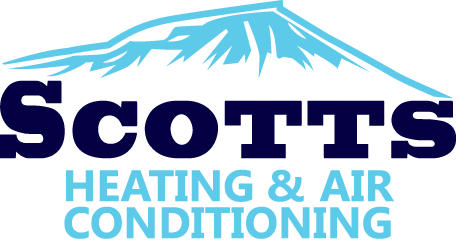Oil Furnaces

There are many different ways to heat your home during the cold months here in Eastern Oregon. We at Scott’s Heating and Air Conditioning are knowledgeable and have experience with all of them. Call us at any time to discuss the best one for your Eastern Oregon home. Lately we’ve been fielding residential calls regarding oil-fired systems, or oil furnaces. An interesting fact about oil furnaces––of the 111 million households in the United States, approximately 8 million use heating oil as their main heating fuel.
To understand how these oil-fired systems, or oil furnaces, work, you need to know there are only three ways for them to distribute heat:
- Warm air through vents
- Hot water through baseboards
- Steam through radiators
When a room in your home gets colder, falling below the temperature you’ve set on your thermostat, the thermostat signals your oil furnace to provide heat. This begins the process for your oil furnace. Your system pulls oil from the tank (where it’s been delivered), sending it to the burner via a pump. There it becomes a fine mist mixed with air. This fuel/air mixture injects into the burner where it’s ignited in the combustion chamber.
From there, depending on which one of the three types of systems from above you have, the system works differently to send the heat throughout your home. In the two types of water-based systems (hot water and steam), water is heated in either a cast iron or steel boiler before moving through your home. In the hot water system, radiators and baseboards disperse the heated circulated water. In a steam system, water condenses to steam and runs through the pipes to the radiators. In a warm air system, your furnace heats the air, and a blower forces the heated air though the ducts to the vents in your floors or walls. The furnace draws the air back through a return duct, repeating the cycle continuously. The fuel-and-air-combustion emissions exit the system by way of a flue pipe running out through your chimney.
If you have an older oil furnace, it may be time to upgrade. We at Scott’s Heating and Air Conditioning can help you with that as well. A newer, more efficient oil furnace can reduce oil consumption by up to 25 percent, making it a worthwhile investment to consider.
Though some people are hesitant to use oil furnaces due to the oil factor, here are a few facts from the Energy Communication Council that should dispel any doubt:
- The heating oil industry is working to cut the sulfur content of heating oil from 1,500 parts per million to 15 parts per million by 2018.
- In addition to its sulfur reductions, the heating oil industry is moving toward zero emissions with new fuel blends, called Bioheat, which contain between 2 and 20 percent renewable fuel.
- Since 1980, the price of heating oil has increased about half as much as prices for other consumer products, according to the U.S. Department of Labor.
- Since 1970, the heating oil industry has cut its total greenhouse gas emissions by approximately one-third.
- Innovations in heating equipment and conservation means that an average consumer using 1,200 gallons of heating oil in 1989 now uses only 800 gallons, or 25 percent less.
- Heating oil burns almost 95 percent cleaner than it did in 1970. Today, residential oil burners produce less than one-third of 1 percent of total U.S. particulate emissions.
- It takes an advanced high-tech burner to ignite heating oil. If you drop a match into heating oil, it will go out as if dropped into water. Heating oil must be vaporized before it will ignite or burn.
Need Oil Furnace Service?
Contact the experts at Scott’s Heating and Air Conditioning.
Call us at 541-963-4316!
Scott’s Heating and Air Conditioning proudly provides HVAC service to Baker City, Cove, Elgin, Enterprise, Imbler, Joseph, La Grande, North Powder, Summerville, Union, and the surrounding Eastern Oregon communities. Visit our service area page for more coverage details, call us at 541-963-4316, or request service online today.
